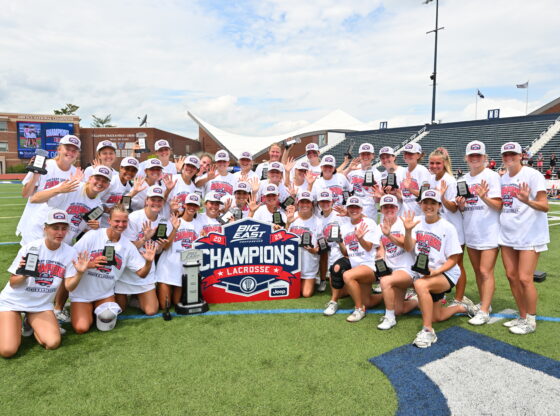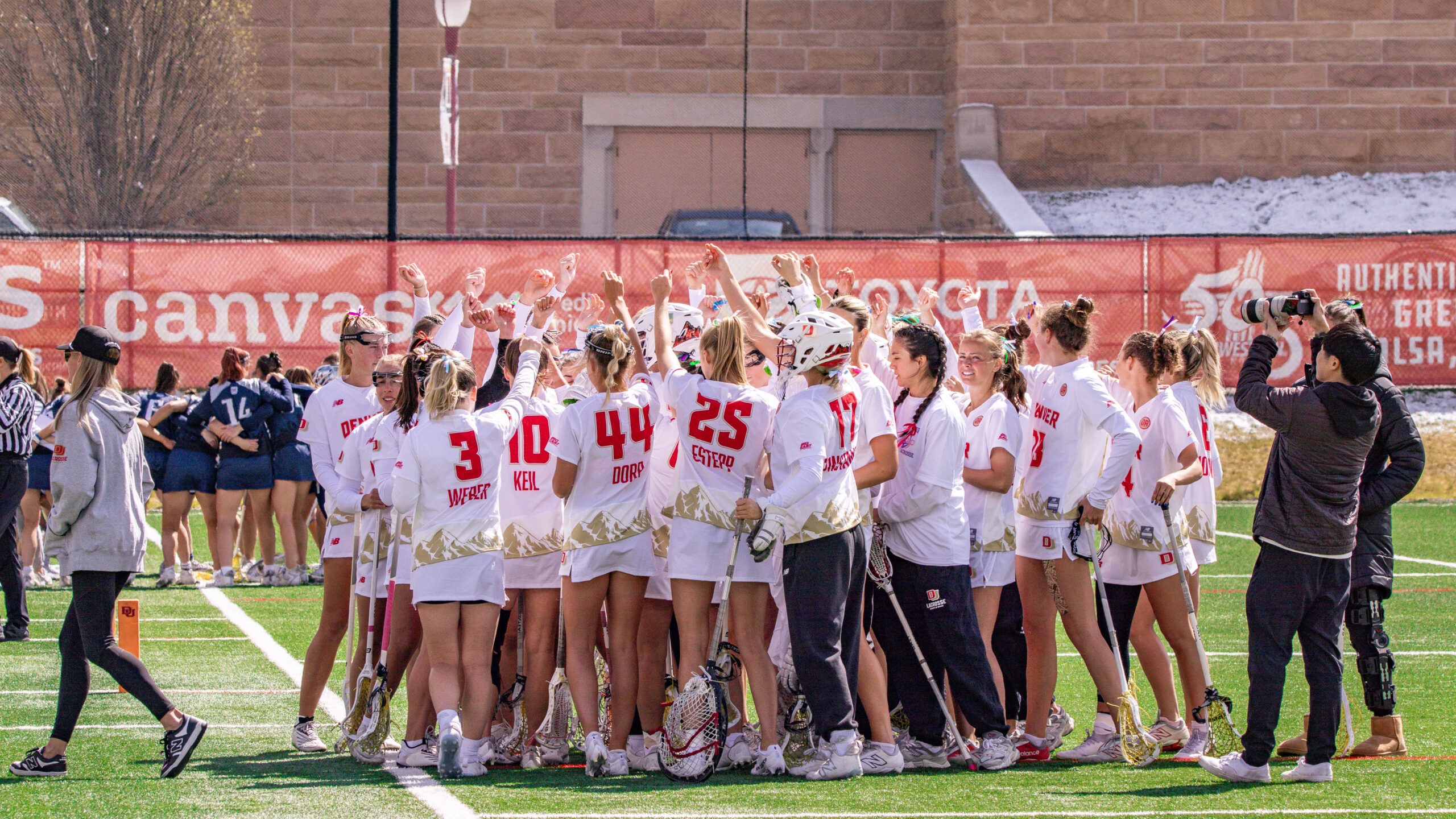Beginning Monday, April 22, through Wednesday, April 23, DU’s more than 120+ custodial workers received a letter informing them that their last day on DU’s payroll would be June 30. The letter also informed the workers that if they choose, they could work for Sodexo, who will take over custodial operations on July 1.
Sodexo, an international food facilities services company, has been hired by DU to manage all custodial work on campus. This full-service model is different from the previous deal DU had with Aramark, another food and facilities management company, which only managed the custodial work while DU handled employee payments. As DU transitions to this full-service model, its employees want to know how they will be affected.
Although this change has been in the works for several months, with Sodexo and other companies competing for DU’s full-service contract, most custodial employees found out a few days ago, long after the decision had been made.
Some noted they hadn’t received any notification prior to Wednesday morning when they were told to attend a meeting about Sodexo’s employee benefits. DU and Sodexo representatives attended these “town hall” style meetings on Wednesday to give information on the change.
Both the day and night shifts had respective meetings. Each one offered a translator and provided headphones so the custodians, many of whom only speak Spanish, could understand the English presentations. Employees were handed packets detailing benefits for Sodexo employees and key dates.
One packet featured two QR codes, which allowed the custodians to fill out the paperwork to transition to Sodexo on the spot. However, these packets were all in English, prompting much confusion and questions about their meaning.
When Sodexo won the bid for the full-service contract, DU required it to hire all of the current custodial workers, maintain their current salaries and seniority, and offer comparable benefits. Workers who have seniority have been employed by DU for a long time, and thus have perks like earning vacation PTO faster. Sodexo says they plan to honor those workers’ perks. Part of the contract also dictates Sodexo is under obligation to negotiate in good faith with AFSCME, the union that represents the custodians.
The custodial workers learned that if they choose to work for Sodexo, they will be forced to switch from DU’s Cigna insurance plan to one of Sodexo’s four Aetna plans. It is unclear if Sodexo’s plans have better or worse co-pays and deductibles than the plan the custodians had prior with DU. Depending on if their doctor takes Aetna insurance, the custodians may be forced to switch care providers as they transition from Cigna to Aetna.
In these meetings, custodians asked many questions, some of which were left unanswered. Some specifics, like tuition benefits, still have to be negotiated once Sodexo begins bargaining with the AFSCME on July 1. Sodexo and AFSCME have to wait until the employees are on Sodexo’s payroll to start drafting the new collective bargaining agreement (CBA). Thus, custodians will have to decide to stay on with Sodexo even though many of their questions remain unanswered.
Several professors, including Aaron Schneider, a professor and representative of DU’s chapter of the American Association of University Professors, attended the first meeting with the day shift. He expressed his solidarity with his custodial co-workers and voiced his concerns about Sodexo first in Spanish and then in English.
“Is this decision final, or is there time now for us to consider it?” asked Schneider.
“The decision is final,” said an unidentified DU representative.
Schneider alleged that Sodexo has a ‘union-busting’ history, which he said he witnessed at his prior university. He said that he and his former colleagues had also known Sodexo to be racist and discriminatory towards African American and Latinx workers. Sodexo and DU vehemently denied his allegations during the meeting. DU has also said it chose Sodexo because it maintains 85 higher-ed union accounts, meaning the company often deals with unions in its day-to-day functioning.
“There is no benefit to the university for either busting a union or getting rid of unionized employees. We have a very high standard,” said an unidentified DU representative.
At the second town hall meeting hosted for the night shift, many were concerned about whether DU’s move was legal under the collective bargaining agreement between DU and AFSCME. James, an AFSCME union representative, spoke bluntly about his view of the move.
“I want to be clear,” said James, “the university and the union have a fundamental disagreement about the legality of this action.”
The legal disagreement stems from a specific clause in the current collective bargaining contract. The clause states that DU cannot subcontract work with the expressed purpose of laying employees off. DU argues that this is not their purpose because Sodexo will offer a job to all of the current custodians on condition that they pass a background check. The union disagrees with this stance.
“Whether you want to call it the sole or expressed purpose of layoffs, what you’re doing to these workers is laying them off,” James said.
In both meetings, many asked whether DU would honor its workers’ tuition benefits. Under the last contract, many employees took advantage of a benefit that financially helped them to send their kids to the university. DU said it would continue providing benefits to anyone currently utilizing it if they accept employment with Sodexo.
“We can say that there’s a strong commitment to ensure that people who are currently enrolled in DU under this tuition labor benefit will be able to continue their certificate program,” said a representative of labor relations for DU.
Whether custodial workers will be able to use the benefit in the future for their kids who are not yet college-age was not made clear and will likely be negotiated in the collective bargaining agreement between Sodexo and AFSCME. Sodexo does, however, offer a 5,000 dollar education reimbursement benefit, which can be used outside of just DU programs.
“I want to be very clear: Five thousand dollars is not enough to go to school here.” James said, “This is a very expensive school to go to, and that’s why this is very important.”
Employees are also worried about their retirement benefits. Working for DU, custodians had a 403 B plan, which DU matched eight percent of what employees put in. Sodexo offers a 401k with a six percent match guarantee, two percent less than the worker’s previous plan. DU has said workers can continue putting money into their previous 403 B plan or choose Sodexos 401k, but both plans will now only match up to six percent.
Many of the custodial workers were also wondering how vacation and sick time would be handled in the transition. Those who had saved up vacation time, DU confirmed, would be fully compensated for their accrued time. Workers must begin accumulating new vacation time when and if they choose to work for Sodexo. Workers who had planned a trip using their accrued vacation time, like one woman planning to visit her sick mother in Mexico, will still be able to do that using DU’s compensation. DU also said they would pay out sick time but not completely and depending on the worker’s seniority.
Workers are also concerned about changes to part-time work benefits. Starting in one year, part-time employees will have to increase their hours worked from twenty a week to thirty just to continue receiving the same benefits. It is unclear whether the upcoming negotiations between Sodexo and AFSCME will change this.
Although many are worried about the transition to Sodexo, very few were content with the previous situation with Aramark. At the meetings, many employees voiced their dissatisfaction with Aramark’s organization. Multiple said they were asked to do overtime work because Aramark could not find sufficient employees to fill gaps when other workers would take vacation.
James, worried about the custodians’ overworking, asked Sodexo if they had plans to hire more full-time and part-time employees. A Sodexo representative asked, “Why is that important?”
“It’s important because my folks are overworked right now,” James responded. “Because they feel like they can’t finish the work they have right now.”
Jade Wilson, Sodexo’s Vice President of Operations who attended the meeting, said, “Our goal is to fix that. We are on the same page there.”
Another point of confusion pertains to individual meetings employees will have to go to on June 8 and 9 and whether they should prepare to be evaluated. Sodexo and DU said these meetings exist purely to help employees with the onboarding process and to answer any questions. Sodexo assured the custodians that this would not be an application process and that they were simply trying to get their information in the system. Sodexo said that each employee must undergo a background check, but the threshold to bar anyone from working would be very high.
The day after the town halls on Thursday, April 25, several students attended an info/training session with maintenance staff to show solidarity with the community’s custodial workers. One worker said she was there as a representative for custodial workers. She was concerned that Sodexo could potentially not follow through on its promises.
“Sodexo has made a promise, but we will see when we negotiate.” She said.
Student organizations like Divest DU and the Student Union for Socialized Progress were also in attendance.
On Friday, the Spanish Language, Literary and Cultural Studies (SLLCS) department presented a motion to the President of the Faculty Senate in solidarity with the affected workers, asking the board to revert the decision. Other departments, such as DU’s chapter of the American Association of College Professors, will likely support the motion.
Student demonstrations continued into the next week. On Monday, at 5 p.m. on the main campus green, the Student Union for Socialized Progress hosted a march, which several custodians attended and spoke at. Student organizations, including Divest DU and the Clarion, have shared plans to interview James, the union representative, to understand the union’s perspective better.











